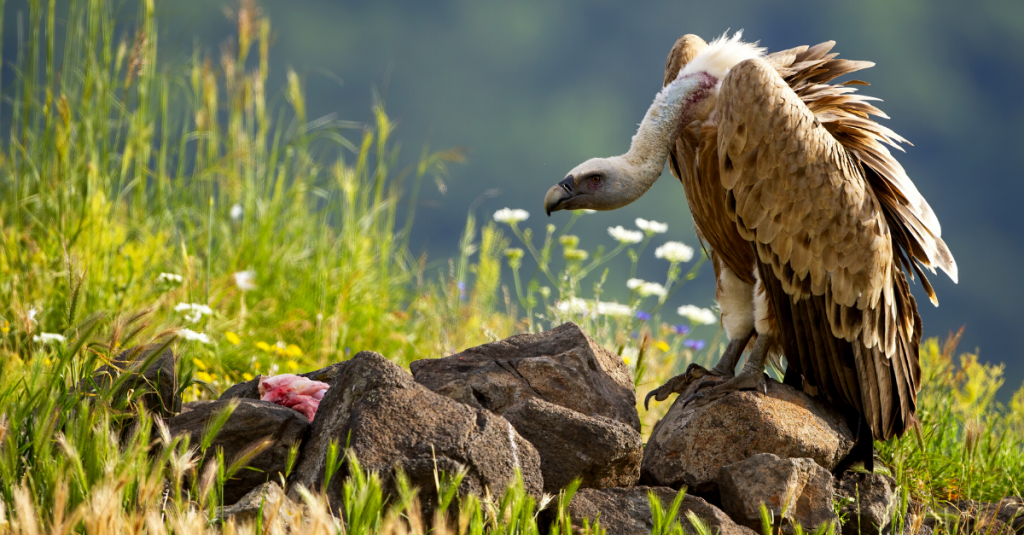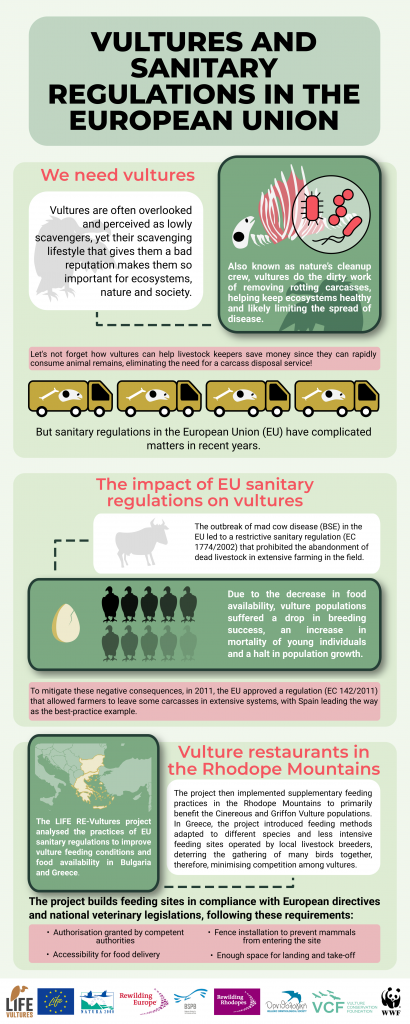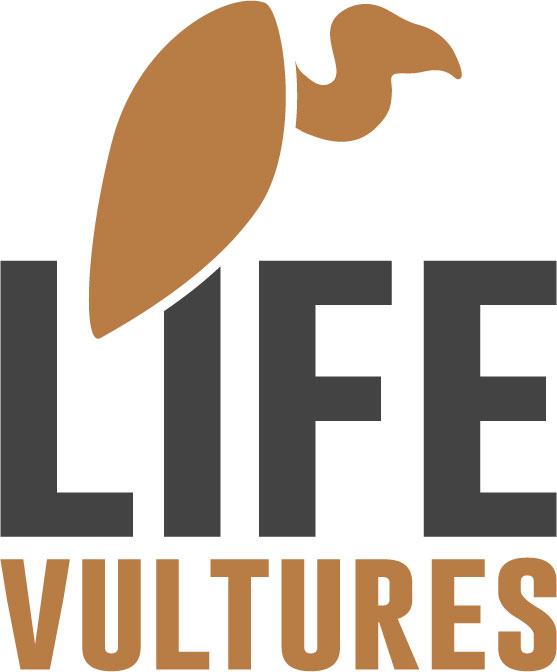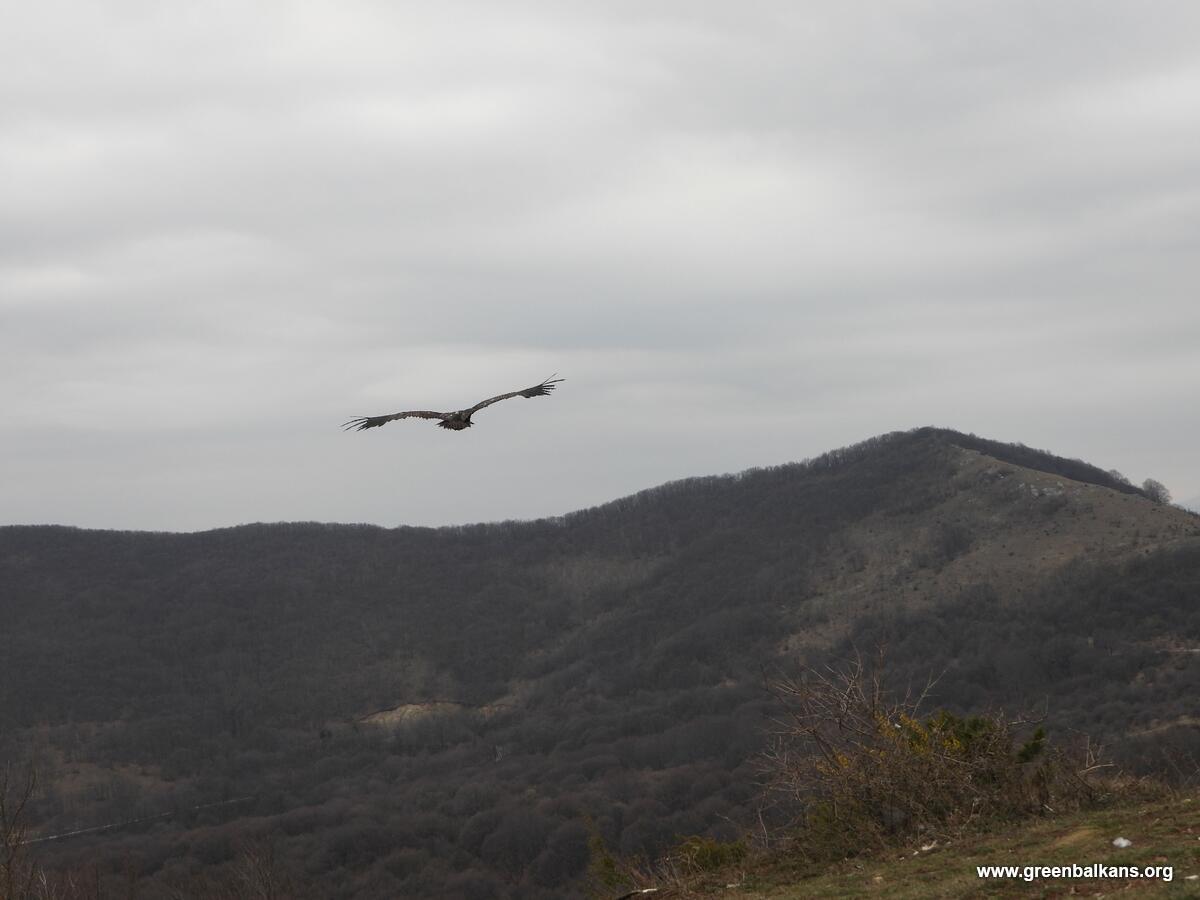
In the wake of the mad-cow disease crisis in the early 2000s, the European Union passed legislation that banned the leaving of dead livestock out in the field. This move reduced food availability for important scavenging birds like vultures, causing adverse impacts on their populations. To mitigate these impacts, the EU then approved new legislation enabling farmers to leave some carcasses in extensive systems.
As part of LIFE RE-Vultures, the project team analysed these regulations to implement relevant practices that improve the feeding conditions of vultures in the Rhodope Mountains in Bulgaria and Greece. To help raise awareness about vultures and sanitary regulations in the EU, you can review and download below an infographic that discusses the importance of vultures, the impact of sanitary regulation on these birds and the situation in the Rhodope Mountains. The infographic was created by Cirenia Sketches and produced by us at the VCF within the LIFE RE-Vultures project.

LIFE RE-Vultures

Starting in 2016, the five-year LIFE RE-Vultures project was developed by Rewilding Europe, in collaboration with the Rewilding Rhodopes Foundation the Bulgarian Society for the Protection of Birds, WWF Greece, the Hellenic Ornithological Society and us here at the Vulture Conservation Foundation. The aim of the project is to support the recovery and further expansion of the populations of Cinereous and Griffon Vultures in the cross-border region of the Rhodope Mountain by improving natural prey availability, monitoring movements of birds to help understand the threats they face and carrying out activities that will reduce the mortality of the populations from threats such as illegal wildlife poisoning and collisions with electricity infrastructure.




